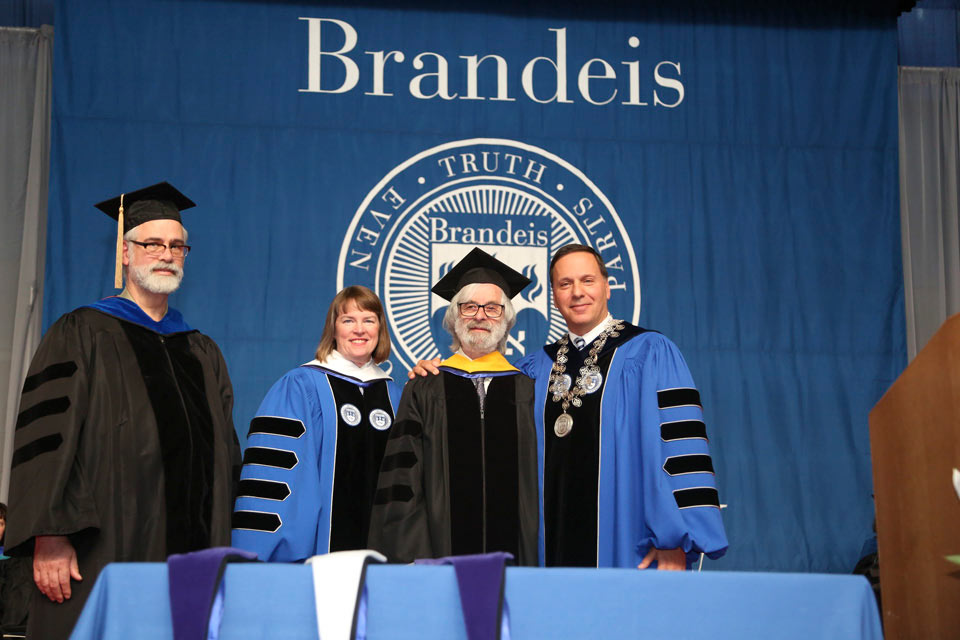Leslie Lamport, MA’63, PhD’72

Left to Right: Professor Jordan Pollack, P’09, Provost Lisa Lynch, P’17, Leslie Lamport, MA’63, PhD’72, President Ron Liebowitz
Computer scientist Leslie Lamport — celebrated as “the father of principled distributed computing” — is a central figure in the development of protocols that allow computer systems to cooperate, avoid errors and resolve confusion.
No less a figure than Microsoft co-founder Bill Gates says Lamport “has done great things not just for the field of computer science but also in helping make the world a safer place. Countless people around the world benefit from his work without ever hearing his name.”
In recognition of his contributions, Lamport, whose master’s and PhD in mathematics were earned at Brandeis, won the 2013 A.M. Turing Award, known as the Nobel Prize of computing.
Lamport has been a researcher at Microsoft Research since 2001. Earlier, he conducted research at Digital Equipment Corporation, Compaq, Massachusetts Computer Associates and SRI International.
Many observers consider his most famous work to be the Paxos algorithm, which guarantees the safety of computer code shared by multiple networks, including unreliable systems.
Lamport’s “Time, Clocks and the Ordering of Events in a Distributed System” (1978) is one of the most-cited research papers ever published in the field of computer science.
Says Bob Taylor, founder of Digital Equipment Corporation’s Systems Research Center, “The internet is based on distributed-systems technology, which is, in turn, based on a theoretical foundation invented by Leslie. So if you enjoy using the internet, then you owe Leslie.”
Lamport is also the developer of the LaTeX document-preparation system, used in academia for scientific documents in a wide range of fields, from applied sciences to economics.
He has been elected to the National Academy of Engineering and the National Academy of Sciences. In addition to the Turing Award, his many recognitions include the Edsger W. Dijkstra Prize in Distributed Computing, the IEEE John von Neumann Medal and the Jean-Claude Laprie Award in Dependable Computing.